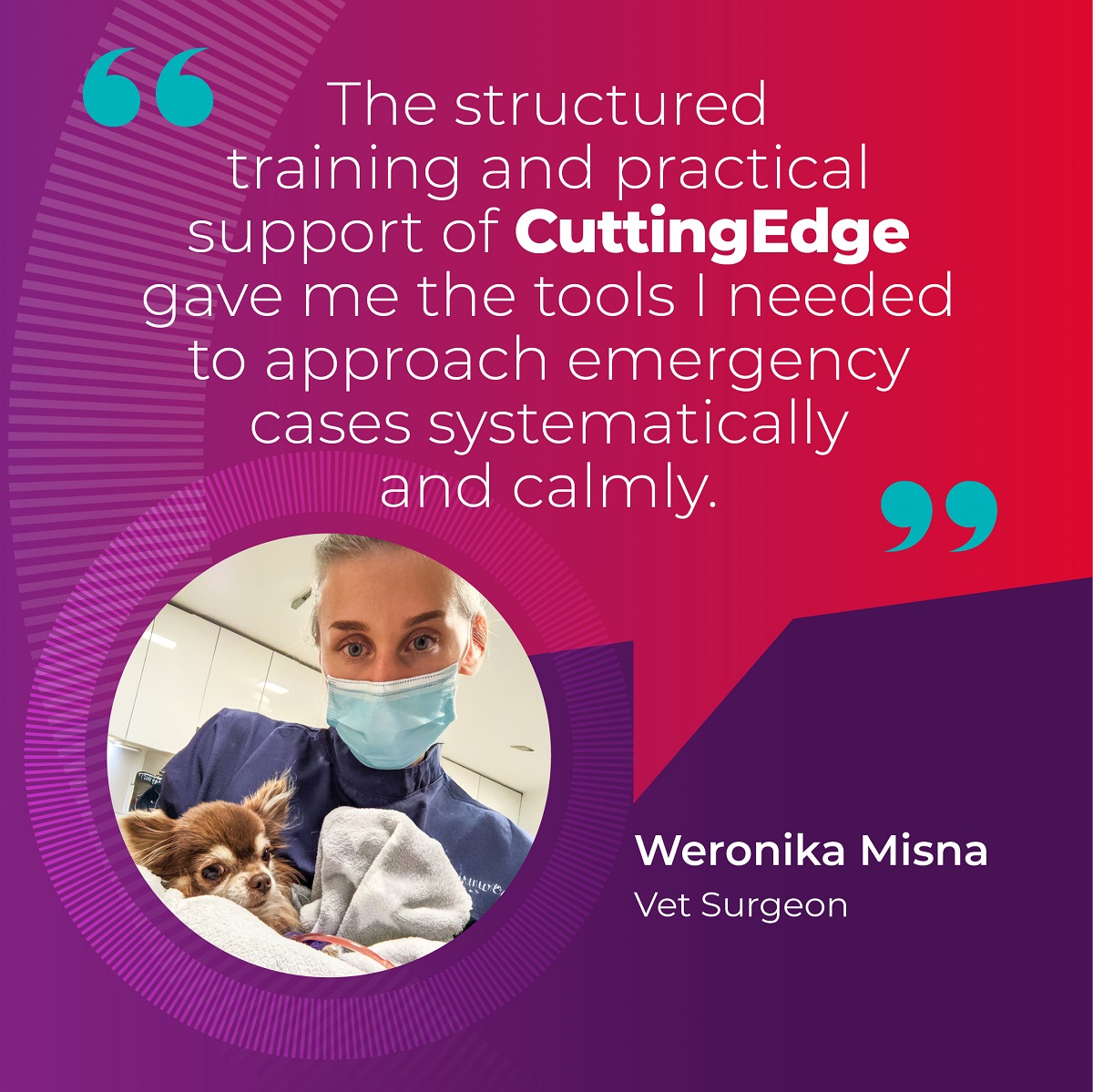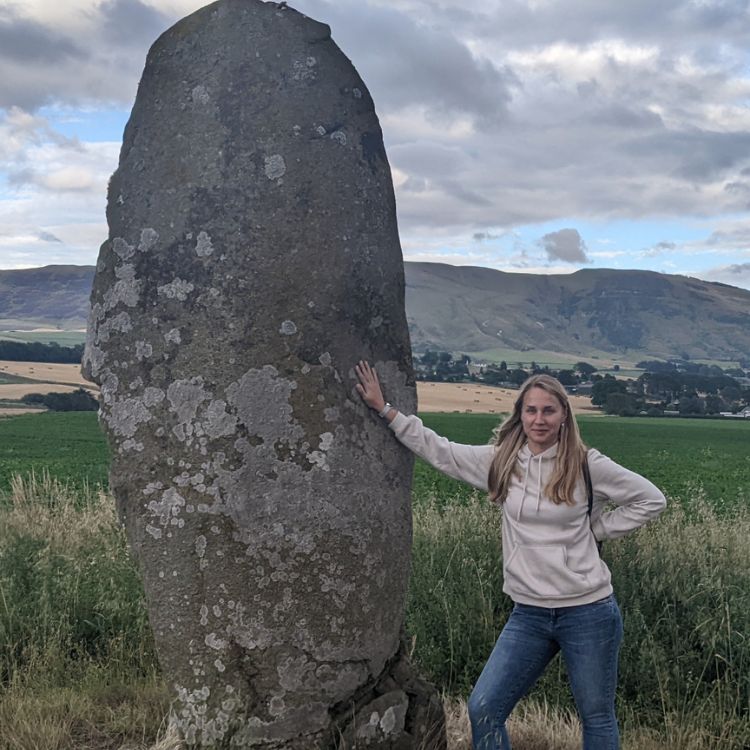We caught up with Vet Surgeon Weronika Misna to learn more about her journey through Vets Now’s Cutting Edge programme.
What were you doing before you joined the programme, and why did you choose Vets Now and Cutting Edge?
Before I joined Vets Now and completed the Cutting Edge course, I was working in a busy first opinion practice in Kent. This role gave me a wide variety of case exposure but I was lacking experience in dealing with Emergency cases.
How did you feel your confidence evolve during and after the programme?
Before the course, I sometimes felt hesitant when faced with high-pressure situations, but the structured training and practical support gave me the tools I needed to approach these cases systematically and calmly.
The course provided not only technical knowledge but also the chance to practise decision-making in a safe and supportive environment.
I learned how to prioritise effectively, stabilise patients, and communicate clearly with both colleagues and clients. As a result, I now feel much more capable and assured when managing emergencies.

How do you feel the course structure as part of the programme, particularly any practical training, helped improve you as a vet?
In my opinion, the Cutting Edge course is structured in a very practical and supportive way. A big strength of the programme is its case-based problem solving — you’re encouraged to think through real-life emergency scenarios step by step, which makes the learning directly applicable to practice. All the necessary information is presented in a clear and useful manner, so you come away with knowledge that you can put into action during shifts.
Another key element is the hands-on training. Having the opportunity to practise emergency procedures and surgeries in a safe learning environment was incredibly valuable. It gave me the confidence to perform these skills when I encountered them in real cases.

What’s a common misconception people have about working out of hours?
A common misconception is that out-of-hours work is only about dramatic emergencies and always feels overwhelming. While we do see true emergencies, the caseload is more varied — often it’s urgent but less critical cases, like post-operative concerns or pets that can’t wait until morning. Even in those situations, owners are often very distressed, and part of our role is to provide reassurance and clear communication.
Another misconception is that out-of-hours work is isolating. In fact, it’s very team-focused — you work closely with nurses and support staff, and there’s a strong sense of pulling together.
If your past self could see you now, what do you think would surprise you most about your ECC journey?
I think what has surprised me the most is how much more comfortable I now feel working sole charge, even under the pressure of a busy caseload. When I first started, the idea of managing true emergencies daily felt daunting, but with experience and the support of the Cutting Edge course, I’ve become much more confident in my abilities.
I’ve learned how to stay calm, prioritise effectively, and trust my clinical judgement more, even in high-pressure situations. What initially seemed overwhelming has become one of the most rewarding parts of the job — knowing that I can handle emergencies independently and make a real difference to patients in critical need.
For more information on our Cutting Edge programme or to apply visit https://www.vets-now.com/careers/edge/cutting-edge/, or if you would like to browse our current vacancies, please visit https://www.vets-now.com/careers/
